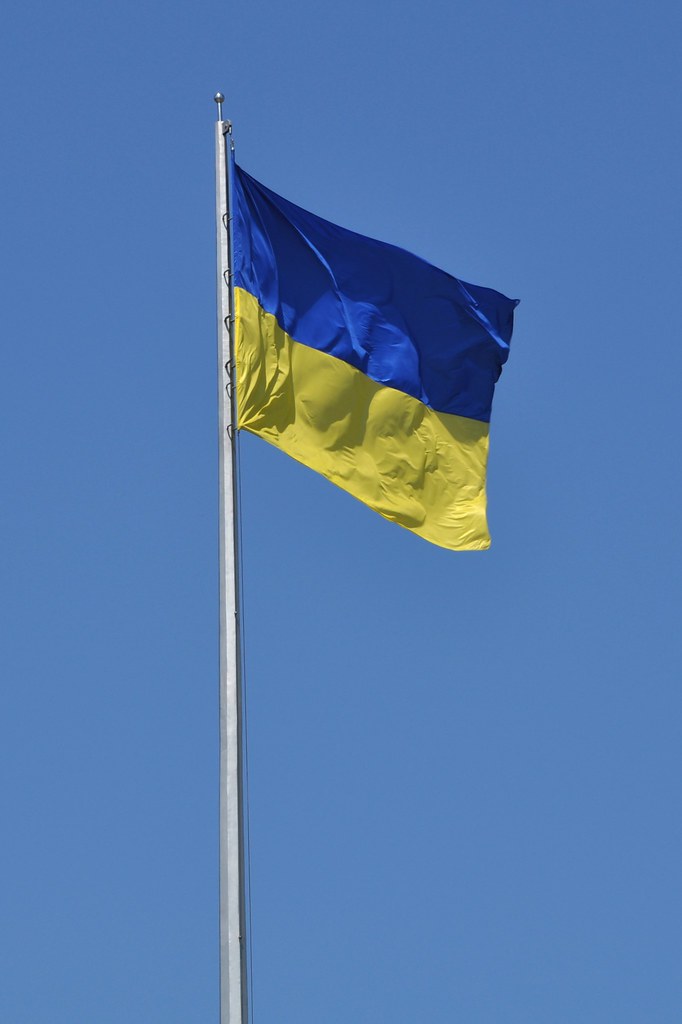| Back OpEd News | |||||||
|
Original Content at https://www.opednews.com/articles/When-everyone-speaks-Uktai-by-Bob-Gaydos-American-Popular-Response-To-Ukraine-Invasion_Bayonne_Eastern-Europe_Putin-And-Ukraine-220303-360.html (Note: You can view every article as one long page if you sign up as an Advocate Member, or higher). |
|||||||
March 3, 2022
When everyone speaks Ukrainian
By Bob Gaydos
No matter the language, everyone seems to understand Ukrainian all of a sudden. And no one, except apparently Belarus and North Korea, is speaking the same language as the leaders of Russia.
::::::::
By Bob Gaydos
I'm not Ukrainian. At least, I don't think I am. That slight doubt exists because I spent my formative years (I hesitate to say I grew up) in Bayonne, much of which was like someone scooped up boatloads of people from Eastern Europe and replanted them in Northern New Jersey.
Which, of course, is what happened.
Our next-door neighbors were Ukrainian. A family a few houses down was Ukrainian, as well as one across the street.
We were (are) Slovak. Or Czech. Or Russian. Or Polish. Or, most likely, some combination of the above or other Slavic nation. Amidst this polyglot of Eastern Europe a short bus ride from New York City, everyone seemed to speak the same language. It didn't seem to matter what the nationality of the person was, my grandparents, my parents, my aunts and uncles all seemed to be able to converse with them.
A stroll down Broadway with my grandmother on a chilly ("zimno" in Polish) fall day would produce a lot of smiling head nods and "dobre, dobre." Good, good.
It was all Russian to me.
So was the mass I served as an altar boy at St. John's Greek Catholic Church, which my father's family attended, and at Saints Peter and Paul Russian Orthodox Church, which the other half of my family ( and I) attended. In a city of churches, Eastern Europe was well represented. Including Ukrainians.
This nostalgic trip down memory lane is prompted, of course, by the Russian invasion of Ukraine and the outpouring of support and admiration for the courageous Ukrainian people from other peoples around the world. No matter the language, everyone seems to understand Ukrainian all of a sudden. And no one, except apparently Belarus and North Korea, is speaking the same language as the leaders of Russia.
The sad reality of this misbegotten display of pride, power and paranoia by Russian President Vladimir Putin is that, while Ukrainians will obviously endure tremendous loss and suffering as a result of this invasion, ordinary Russians, who also wanted no part of this war, will suffer as well. Russian soldiers will die as well as Ukrainians. The worldwide outpouring of support for Ukraine has isolated Russia, again, from much of the rest of the world. Even those who speak the same language, want no part of Putin's war.
It's been some time since I visited Bayonne and I understand it has changed quite a bit. But the churches are still there and I'd like to think that some of the children, grandchildren, even great-grandchildren, of the neighbors who used to smile and nod at my grandmother on Broadway are still there and all still seem to speak the same language when they talk about Ukraine, shake their heads sadly, and say, "Bozhe, Bozhe, Bozhe."
My God, My God, My God.
rjgaydos|AT|gmail.comEmail address
Bob Gaydos is writer-in-residence at zestoforange.com.
(Article changed on Mar 03, 2022 at 11:16 PM EST)
Authors Website: https://www.blogger.com/home
Authors Bio:
Bob Gaydos is a veteran of 40-plus years in daily newspapers. He began as police reporter with The (Binghamton, N.Y.) Sun-Bulletin, eventually covering government and politics as well as serving as city editor, features editor, sports editor and executive editor. He was also managing editor of the Evening Capital in Annapolis, Md. He retired from daily newspapering in 2007 after 29 years with the Times Herald-Record in Middletown, N.Y., where he was Sunday/features editor and, for 23 years, editorial page editor. He won numerous awards for his editorials from the New York Newspaper Publishers Association and The Associated Press and in 1992 was a finalist for The Pulitzer Prize for editorial writing. Gaydos continues to write on a freelance basis, including a column on addiction.
